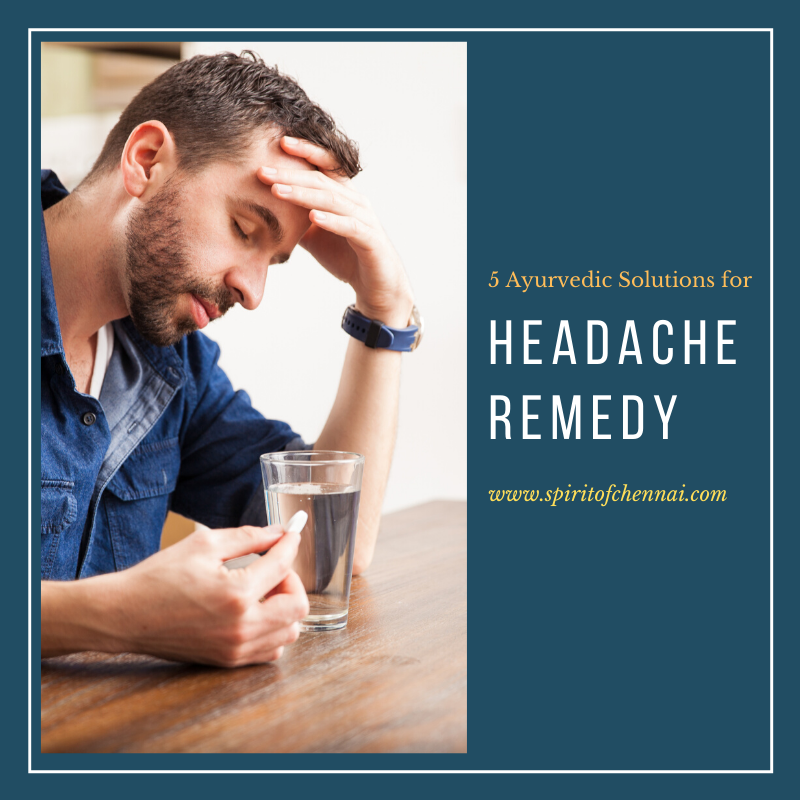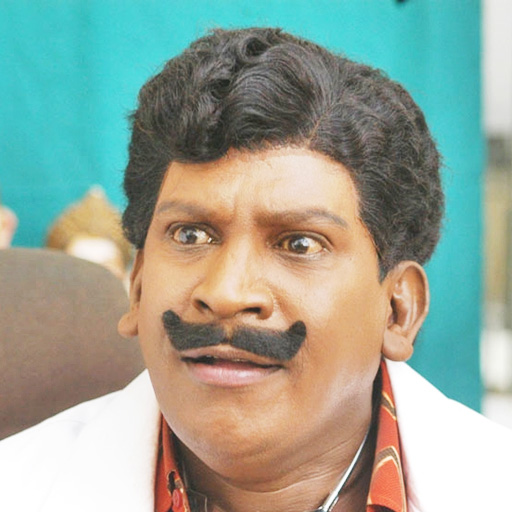What Causes Headache?
Headache is the most common of ailments today affecting the young and old alike. In by gone days, aches and pains used to be a complaint of the elderly. Today there is no one exempt from this ailment. An occasional headache is so common that nothing is thought about it and ignored for as long as possible but constant and recurrent headache is something that needs attention.

There can be a plethora of reasons why a headache comes up. Some of these are quite obvious reasons like high blood pressure, migraine or an underlying pathological cause such as an illness or flu. The not-so-obvious reasons of headache plaguing the vast population today is stress, lack of sleep, not enough hydration, prolonged exposure to sun without any shade, exposure to loud noises like the constant honking of traffic, incorrect eye glasses to name a few. Some other triggers could be prolonged emotional distress, anxiety or even depression but the single most common trigger for a headache today is stress.
In our day and age, one cannot get away from stress. Stress at work, at home, in relationships, societal stress and even peer pressure experienced at school level can be a cause of headache. One has to learn to manage stress and take things with a pinch of salt. The better we get at it, the smoother life will be.
Types of Headaches & Location
Headaches can be broadly categorized into five types depending on their location and causes. Each of these has their own set of symptoms and treatment options.
Tension headache.
As the name suggests, this is a non-pathologic condition, mainly caused by some kind of stress. As per a publication by World Health Organization, between 1-3% of adults suffer chronic tension headaches. The symptoms include dull, aching pain on both sides of the head, a feeling of pressure behind the eyes, tight neck and shoulder muscles and a feeling of heaviness of the head. These usually resolve in a day or two with resolution and better management of stress. It is usually best managed by slowing down your pace of life, paying attention to your needs, getting enough rest and hydration and other such person-specific needs. One must recognize the trigger and pay attention to resolve it. As far as possible one must avoid medication to treat tension headaches.
Cluster headache
These are the most excruciating of all types of headaches, tend to occur at the same time every day and last between 15 minutes to few hours. The attacks occur in clusters of weeks or even months occurring at the same time everyday and then are there will be long periods of remission or relief lasting for months or even years. The symptoms include stabbing or burning pain centered over one eye or temple, red and watering eye, drooping or swollen eyelid, blocked or runny sinus, constricted pupil, and sweating. Unlike other types of headaches, cluster headache is generally not associated with triggers such as foods, hormonal changes or stress but strong smells, alcohol and cigarette are known to trigger a headache when one is in the middle of a cluster period. The exact cause is not known but the headache pattern is suggestive of abnormalities in the hypothalamus, a part of brain also called the biological clock of the body. One must immediately consult a physician and start on treatment. Group therapy and oxygen therapy are believed to have shown good results.
Giant cell arteritis
This is a serious but uncommon type of headache known to affect only 0.25% of adults over 50 years of age. GCS also called temporal arteritis is a disease caused by inflammation of the large blood vessels in our scalp, neck and arms. Inflammation causes narrowing or blockage of the vessels hence interruption of blood flow. The symptoms are persistent pain in the temple area, scalp tenderness, jaw pain, and vision problems. If left untreated, it can lead to vision loss. About 50% of patients suffering from polymyalgia rheumatica also develop GCS. Immediate medical attention is needed to avoid deterioration and further complications.
Sinus headache
This type of headache is caused by infected sinuses called sinusitis. Sinuses are regions around our eyes, cheeks and forehead that can get infected and clogged causing throbbing pain around the eyes, forehead, brow and cheeks. The symptoms include pain and fullness in these areas, worsening pain on bending forward, stuffy nose, achy feel in your upper teeth, and fatigue. However, sinus headaches can easily be misunderstood for tension type headaches or migraines as the symptoms seem to overlap. It is important to see your physician if over-the-counter medication is not helping or if the symptoms are persisting for more than two weeks.
Migraine
A migraine headache is characterized by intense pulsating kind of pain on one side of the head accompanied by heightened sensitivity to light, sounds or smells followed by nausea and vomiting. Although the causes of migraine are not fully understood, it is thought to be as a result of specific changes within the chemical balance of the brain. A migraine headache generally has four stages called pro-drome, aura, attack and post-drome. A few days before the onset of the headache, one may experience subtle changes that warn about an upcoming attack, example – constipation, neck stiffness, mood changes etc, followed by aura where one may experience visual phenomena such as bright spots, flashes of light or difficulty speaking. This is then followed by the actual onset of headache which is intense, on one or both sides of head, may last for hours, and worsened by loud noises or bright light. The post-drome phase is where the patient feels drained and washed out for up to a day. Not everyone experiences all the phases of migraine but these are the main symptoms that characterize a migraine. Medical attention and advise is necessary to treat it effectively.
Side Effects of Headache Tablets
Headaches are usually well managed with non-prescription medications and there are many brands of medications available in the market today. The most popular ones in India are aspirin, ibuprofen, and acetaminophen. The others types are narcotic pain relievers such as Fentanyl and muscle relaxants such as Baclofen. However, due to prolonged use, these medications may become ineffective and may even cause undesirable side effects. To list a few of them, Ibuprofen can cause upset stomach, heartburn, dizziness, and even mild rash. Saridon can cause adverse reactions such as skin rashes, itching, mild breathing problems, and even decrease in blood cell count. Aspirin can cause similar side effects like skin rash, stomach ulcers, drowsiness, and cramping.
Need for Ayurvedic Headache Treatments at Home
Home remedies are a sure but slow way of dealing with ailments because they address the problem from the roots. They are still the safest and most effective way of treatment, even though old fashioned. Warm ginger tea mixed with lemon juice had every day in the morning will help relieve the symptoms as ginger is known for its anti-inflammatory properties, soothing the nerves. Another very effective ingredient found in every kitchen is cloves. Cloves are known for their cooling and pain relieving properties. Crush a few cloves and place the powder in a handkerchief, inhale the aroma until you experience relief from headache.
Headache Tablets that Work
Product 1: Dr. Vaidya’s Shardardaghna Ayurvedic Pills For Headache and Migraine
You Can Try / Buy this Here https://amzn.to/2WkZOyj
This natural ayurvedic formulation comprises of 12 natural ingredients. It is most effective for migraine headaches, helps relieve the pain as well as ensures proper blood circulation and helps with irritability also as it soothes the nerves. The pills are recommended to be taken twice a day, one after breakfast and one after dinner. The pain relief effects are seen in a matter of days.
Product 2: Himalaya Wellness Pure Herbs Brahmi Mind Wellness
You Can Try / Buy this Here https://amzn.to/2JsOFWS
Himalaya’s pain relief capsules are made from Brahmi whole plant extract. Brahmi is a known nootropic, meaning mind tonic that helps enhance mental agility and memory while calming the mind and promoting clarity of thought. The directions for use is one capsule twice a day or as directed by your physician.
Product 3: Sri Sri Tattava Shirashoolari Vati,
You Can Try / Buy this Here https://amzn.to/2PzAeEr
A product of SriSri Tattava, this ayurvedic medicine is especially designed for migraine headaches although it can help with any other type of headache. It helps calm the central nervous system and induces sound sleep. It also takes care of the nauseous feeling associated with a headache. As per customer reviews, it is one of the most effective medicines available with no side effects. Dosage prescribed is two tablets thrice a day.
Product4: Nutree Pure Migraway Tablets
You Can Try / Buy this Here https://amzn.to/2JsOtXL
A product of Nutree Pure, Migraway is made from 12 natural herbal extracts that are carefully sourced and prepared within the boundaries of Ayurvedic science. They do not contain chemical preservatives or caffeine that can cause damage to your stomach lining. They do not induce drowsiness but in fact help with pain relief, anxiety, sleeplessness and restlessness. The recommended dosage is one tablet twice a day after meals.
Product 5: Vedicmeds Ayurveda Therapy for Migraine for Instant Relief
You Can Try / Buy this Here https://amzn.to/36dy2Ie
This unique formulation has 11 ayurvedic herbs which gives three times faster relief than any allopathic drops or sprays. Specially designed for migraine headaches, one can expect results in a matter of minutes. This nasal drops also deals with the associated symptoms of nausea, indigestion, and reduces aura before the onset of headache. It immediately improves blood circulation and thus effectively relieves a headache. Two drops of this formulation has to be put in each nostril and lie down for 10 minutes for it to take effect.
In Conclusion
In conclusion, headache is a common symptom of stress in our lives. While we have to attend the symptoms and get relief, we need to get to the root cause and treat it there. We cannot change the world we live in and the pressures around us but one thing that we can do is learn to better manage our lives, set our priorities right, get the help needed, and respond to pressures in a positive, thoughtful way rather than react to it. This way, we can ensure that we remain in control and chose to become better through our circumstances.
It is not a good idea to over medicate at home. Especially if the symptoms are severe. So please visit the Neurologist in your locality in Chennai.



